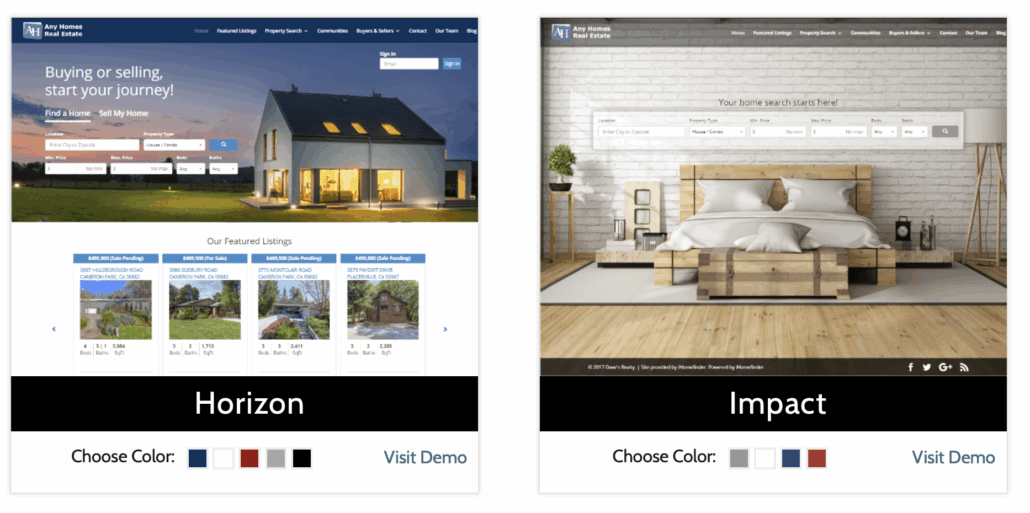Real Estate CRM Features 2026: What Matters Most?
Real Estate CRM Features 2026: What Matters Most?
The role of a Customer Relationship Management (CRM) system in the real estate sector has transformed dramatically. What started as a digital address book has evolved into a powerful, all-in-one command center for managing leads, marketing, and deals.
As we look to 2026, the real estate tech stacks are shifting again. Except this time, they’re driven by AI-powered leads, the need for seamless team collaboration, and higher client expectations for instant communication.
With top-performing real estate teams relying on CRMs to manage their pipelines, having the right technology is a non-negotiable. That’s because digital transformation has raised the bar for customer expectations and consistent follow-ups.
A modern real estate CRM in 2026 needs smart automation, predictive AI insights, helpful IDX integration, and tools for mobile access, team collaboration, and personalized follow-up.
In this guide, we’ll walk you through the essential features you need and highlight what separates a decent CRM from your “can’t live without this” choice.
What Is a Real Estate CRM?
A real estate CRM is a specialized software platform designed to help agents, teams, and brokerages manage their relationships with clients and leads. Its core purpose is to centralize contact information, allowing you to view all your contacts in one place for better organization and efficiency.
Thanks to contact management features, a CRM also tracks interactions and automates communication to prevent you from missing out on any new opportunities.

But in 2026, the importance of your CRM extends way beyond simple organization. A powerful real estate CRM gives you ownership of your data.
Unlike leads generated through third-party portals where you’re one of many agents vying for attention, the data in your CRM is exclusively yours. It allows you to build a sustainable business asset—a database of relationships you can nurture over years, independent of any single platform.
Features Every Real Estate CRM Software Needs in 2026
As technology advances, baseline expectations for CRM capabilities also gone up.
Modern CRM systems are specifically designed to address the unique needs of real estate professionals, offering features like lead management, automation, customization, integration, and scalability. Here are the non-negotiable features your real estate CRM needs to have to keep you competitive.
1. Centralized Lead Management
Your leads come from everywhere: your IDX website, Zillow, social media ads, open houses, and referrals. The right CRM must help you manage leads, automatically capturing and organizing every inquiry into one central dashboard.
Without a CRM, it’s easy to lose track of potential clients, which means forgotten leads and missed opportunities.
Look for a system that provides:
- Automatic lead capture from all your sources, eliminating manual data entry.
- Intelligent categorization that tags leads based on their source, budget, or interests.
- Real-time notifications for new inquiries, so you can respond within minutes.
- Sales pipelines organization and tracking, allowing you to monitor the progression of each lead through every stage of the sales process.
For example, an effective CRM can flag a lead who has viewed a specific listing three times or saved multiple property searches, signaling they are a high-intent prospect who needs immediate attention. The CRM helps you nurture leads from initial contact all the way through the sales process.
2. Smart Automation and AI Assistance
Automation is the engine of a modern real estate business. It handles repetitive tasks so you can focus on high-value activities like building relationships and closing deals. Unlike traditional manual processes, better automation capabilities streamline operations and reduce errors.
In 2026, artificial intelligence takes this a step further by adding a layer of predictive insight. In-demand AI and automation features include:
- Predictive lead scoring that analyzes behavior to identify which prospects are most likely to convert.
- Predictive analytics for sales optimization, lead scoring, and personalized customer interactions to improve deal closure rates.
- Automated drip campaigns that nurture leads with personalized emails and text messages over time.
- AI-assisted content creation for drafting follow-up emails, social media posts, or property descriptions.
- Voice-to-text logging that allows you to dictate call notes directly into the CRM, instantly creating tasks or reminders.
- Automation capabilities may vary by pricing plan, with some plans offering limited features that can affect property management automation efficiency.
3. Deep IDX and Website Integration
Your website is your digital storefront, and your CRM should be seamlessly connected to it. When your CRM and IDX (Internet Data Exchange) work together through seamless integration, every click, search, and saved property becomes a valuable lead signal. Additionally, integrating with property portals allows you to automatically capture leads and manage transactions efficiently.
This integration should enable:
- Seamless data synchronization between your website activity and CRM contacts.
- Behavioral tracking that logs saved searches, viewed listings, property alert preferences, and tracks clients’ specific property interests.
- Auto-triggered follow-ups based on specific IDX activity, like sending an email with similar listings after a user saves a favorite property.
This connection transforms your website from a passive search tool into an active lead-generation machine.

4. Full-Featured Mobile and On-the-Go Access
Real estate doesn’t happen behind a desk. Your real estate CRM needs to offer a robust mobile experience that gives you the same power in the field as you have in the office.
Key mobile capabilities include:
- A full-featured mobile app for managing leads, tasks, and communications in real time.
- Push notifications for new leads, important tasks, and client messages.
- Cross-device synchronization to ensure your data is always up-to-date across your phone, tablet, and desktop.
5. Customizable Pipelines and Automation Rules
No two real estate businesses operate exactly the same way. Your CRM should adapt to your unique workflow, not force you into a rigid, one-size-fits-all process.
Look for:
- Drag-and-drop deal stages that can be tailored for buyers, sellers, renters, and past clients.
- Customizable sales workflows that can be automated to streamline the sales process, improve lead management, and enhance operational efficiency.
- Workflow templates for common processes like new listing checklists, open house follow-ups, or closing coordination.
- Automated reminders for client birthdays, home purchase anniversaries, and other key milestones to foster long-term relationships.
6. Multi-Channel Communication and Marketing Tools
Effective communication means meeting clients where they are. A great CRM integrates marketing tools that allow you to connect with your audience through various channels from a single platform. Marketing automation is essential for streamlining outreach and ensuring consistent engagement with potential clients.
Essential marketing tools include:
- Built-in email and SMS marketing capabilities for enhanced client communication.
- Smart templates for newsletters, market updates, and open house invitations.
- Integrations with ad platforms like Facebook and Google for seamless retargeting campaigns.
- Management and tracking of marketing campaigns within the CRM to target clients and analyze outreach effectiveness.
7. Advanced Analytics and Performance Insights
You can’t improve what you don’t measure. A top-tier CRM provides an analytics dashboard that turns your data into actionable insights about your business’s health and growth opportunities. With the ability to track key metrics and analyze data, you can make informed decisions that drive better results.
This dashboard should show:
- Key performance indicators (KPIs) and key metrics like conversion rates, pipeline value, and marketing ROI.
- Agent performance tracking for team leads and brokers to monitor individual and team productivity.
- Predictive forecasting that uses AI to project future revenue based on your current pipeline, supporting future growth and scalability.
Security and Data Protection in Real Estate CRMs
In today’s real estate industry, safeguarding client data is a fundamental requirement for real estate businesses aiming to build trust and maintain a competitive advantage.
With the increasing reliance on CRM tools to manage sensitive information, real estate professionals have to make sure that their chosen real estate CRM software is equipped with robust security features.
A secure CRM system:
- Protects confidential client data from unauthorized access
- Guards against breaches and data loss
- Helps maintain strong client relationships and ensures client trust
Modern real estate CRM platforms should offer advanced encryption methods, secure login protocols, and granular access controls to keep client data safe. Compliance with industry regulations, such as GDPR, is also crucial for demonstrating a commitment to privacy and protecting your business from legal risks. Regular security audits and timely updates help ensure that your CRM software remains resilient against emerging threats.
Advanced Features That Differentiate CRMs in 2026
While the core features above are the foundation, several advanced capabilities distinguish the best CRMs from the rest.
Top producers recognize the need for tools like:
- AI-Powered Chatbots: Integrate with your website to automatically qualify leads 24/7, answer common questions, and schedule appointments. As an increasing number of agents turn to AI-powered chat assistants, having this feature baked in can put you ahead of the game.
- Robust Integration Ecosystem: Ensure the CRM works seamlessly with your calendar, email client (Gmail/Outlook), transaction management software (e.g., DocuSign), and accounting tools. The ability to integrate with existing systems allows you to streamline operations and connect all your business tools in one place. This integration also helps streamline processes by automating data flow and reducing manual entry.
- Data Privacy and Compliance: Look for built-in tools for managing client consent (like TCPA for SMS) and ensuring secure data storage.
- Voice and Virtual Assistant Integrations: Manage your leads hands-free by using Siri, Alexa, or Google Assistant to add notes, create tasks, or call contacts.
How to Choose the Right Real Estate CRM
With so many options available, selecting the right CRM can feel overwhelming. Real estate companies should look for CRMs tailored to their unique needs. Follow these steps to make an informed decision:
- Assess Your Needs: Evaluate your team size, sales volume, current workflows, and specific use cases such as property management. A solo agent has different needs than a 20-person brokerage.
- Prioritize Integrations: Make a list of your existing tools (IDX website, MLS, email marketing service) and ensure the CRM integrates with them.
- Evaluate Scalability and Data Ownership: Choose a platform that can grow with your business. Critically, confirm that you own your data and can easily export it if you decide to switch providers.
- Test the User Experience: Take advantage of free trials. A CRM is only effective if your team actually uses it. Is it intuitive? Is the mobile app functional? Strong client engagement and customer engagement are key benefits of a well-chosen CRM.
- Consider Support and Training: Look for a provider that offers robust customer support, onboarding assistance, and training resources. Good support enhances client service and improves client engagement.
- Review Affordable Pricing and Value: Consider affordable pricing and the overall value offered, especially for real estate companies seeking comprehensive features at a reasonable cost.
Common Mistakes Agents Make When Picking a CRM
Choosing the wrong CRM can be a costly mistake in both time and money. Avoid these common pitfalls:
- Focusing only on price instead of ROI: The cheapest CRM is rarely the best. An effective CRM is an investment that should generate a positive return by increasing your conversion rates.
- Ignoring mobile usability: If the mobile app is clunky or lacks key features, your team won’t use it in the field, defeating its purpose.
- Choosing a generic CRM: A generic system won’t have crucial real estate-specific features like IDX integration or MLS data sync.
- Failing to plan for adoption: The best CRM in the world is useless if your team isn’t trained on how to use it. Allocate time for onboarding and ongoing training.
The best CRM isn’t just affordable—it’s the one your team consistently uses to close more deals.
The Future Is Here: Get Ahead with iHomeFinder
Choosing a CRM doesn’t have to mean patching together multiple systems. iHomeFinder offers an all-in-one solution that seamlessly integrates a powerful, real estate-specific CRM with our market-leading IDX websites.
Our platform is designed to give you a competitive edge by:
- Unifying your data: Your website activity, lead information, and communications are all stored in one place.
- Providing actionable insights: Our dashboards and predictive lead-scoring tools help you focus your efforts on the hottest prospects.
- Automating your follow-up: Build custom drip campaigns and automated workflows that nurture leads from first click to closing and beyond.
Stop juggling multiple tools and start growing your business with a single, integrated platform.
Discover how iHomeFinder’s CRM keeps your leads organized and your business growing.
FAQs About Real Estate CRMs
What does a real estate CRM do?
A real estate CRM (Customer Relationship Management) system helps agents organize contacts, track leads from various sources, automate follow-up communication, and manage their sales pipeline from first contact to closing.
Which CRM features are most important for real estate agents in 2026?
The most critical features for 2026 are smart automation, AI-powered lead scoring, deep IDX website integration, a full-featured mobile app, and advanced analytics. These tools are essential for staying efficient and competitive.
Can small real estate teams or solo agents benefit from a CRM?
Absolutely. Modern CRMs are scalable and affordable, offering solo agents the same automation and organization tools that large teams use. For a small operation, a CRM is like having a dedicated administrative assistant, saving time and preventing leads from slipping through the cracks.
How do I choose the best CRM for my business?
Focus on your specific needs. Prioritize a CRM that integrates with your existing website and tools, offers robust automation, and has a user-friendly interface. Always take advantage of free trials to see if it’s a good fit for you and your team before committing.



